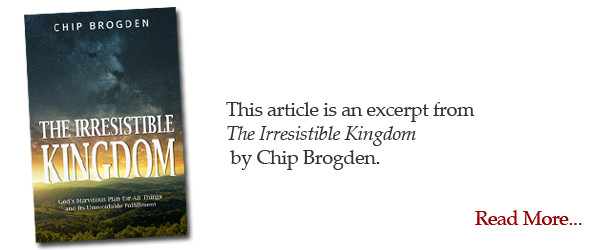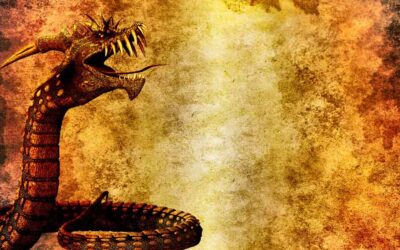The Ekklesia is presented in the Scriptures as the Body of Christ. What does this mean?
First, the Body of Christ means that the Ekklesia shares in the same Life as Christ. “In Him was life; and the life was the light of men” (Jn. 1:4). Members of His Body can now say with equal assurance that since they are in Him Who is Life, they share in that same Life, for “he that has the Son has life; and he that has not the Son of God has not life” (1 Jn. 5:12).
The Body of Christ is not a corpse. Not only does the Body live, but its life is a resurrected life: “I am He that lives, and was dead; and, behold, I am alive for evermore” (Rev. 1:18). Having passed through death and risen again, Christ endures forever, and so does the Body of Christ. We learned previously how this was accomplished in the individual members: they took up the Cross and were crucified, dead, buried, resurrected, seated, and ascended together with Him. It stands to reason that the Ekklesia, as the aggregate of all those disciples of Jesus, would share in that Life together as well as individually.
Second, the Body of Christ means that Christ is the Head of the Body and His disciples are the members. Even in the natural realm we know that a healthy physical body does not make decisions or take any action apart from the head. It is the head (i.e., the mind) that determines what the body will do. Indeed, the body cannot properly function apart from the head. When the body is disabled due to injury or disease it means either the body is unable to carry out the instructions of the head or the head is unable to give instructions to the body. We rightly observe this as something that needs medical attention. Were the head to be separated from the body the result is immediate death.
Equally obvious is the fact that the head can take no action without involving the body. We must not force this metaphor to an extreme and suggest that Jesus is unable to do anything without us; but we can certainly say that Jesus, as the Head of the Ekklesia, will not do anything without involving His Body. As Jonathan said of his father, so we can say of ours: “Behold, my father does nothing either great or small without disclosing it to me. And why should my father hide this from me?” (1 Sam. 20:2ff, ESV).
This is the same sense in which we should see the Ekklesia as the Body of Christ. In one sense Christ can never be separated from His Body; in another sense, nothing prevents members of the Body from going independently of Christ. Even in the Ekklesia God forces nothing upon anyone, but there is the warning from Jesus that “without Me you can do nothing” (Jn. 15:5b). Disciples of Jesus are expected to shun the independent path of Adam and follow the narrow path of moment-by-moment dependence on Christ; if not, the effect may not be actual separation from Him, but the spiritual consequence is very nearly the same for those “not holding the Head, from which all the body by joints and bands having nourishment ministered, and knit together, increases with the increase of God” (Col. 2:19). Not holding the Head – that is, taking action independently of the Head – means loss of nourishment, which leads to spiritual decay and eventual loss of life. As we have seen, Life is entirely dependent upon our relationship to the One Who is Life. He that has not the Son, or he that holds not the Head, has no Life.
Third, the Body of Christ means that all the different members have their own place and function, each contributing something to the others, each playing a vital role: “Now all of you together are Christ’s body, and each one of you is a separate and necessary part of it” (1 Cor. 12:27, NLT).
We have said that Christ calls us as individual disciples and the Holy Spirit then works with each of us personally. Now we see how the individual disciples are brought together to form His Body. Each retains their uniqueness, yet there is something among each of them that is common to all. There are different members in different places with different purposes: each distinctive but each working together, united beneath the same great Purpose and Intention of God, working under the direction of the Head like a great spiritual symphony.
“God set the members every one of them in the Body, as it has pleased Him” (1 Cor. 12:18). This results in a spiritual oneness and unity (for better or worse) so that “if one member suffers, all the members suffer with it; or if one member is honored, all the members rejoice with it” (1 Cor. 12:18).
Everything you do (or do not do) as a member of the Body of Christ affects all the other members. No one is an island. The Difficult Path may be lonely at times, but we are never truly alone.













